“I have lost a lot in the past 6 months; friends, family members and a part of my soul.”
God help us, we live in the world we have made and it’s a wounded, aching earth. There is something dying in it. It’s been that a way a while. I’ve only been here forty years.
The season is slow to turn over here, though I don’t mind. April snow in New Mexico feels in the body and mind different than Chicago snow in April. Satisfying, even. It’s the sun, likely. Usually is.
As long as the sun comes out, I can bear it, and by it I mean whatever I have to.
What I have to do these days is find my center of gravity and hold myself around it. Some days go easier than others. Nearly every day these last six months, I’ve seen the worst thing I ever saw. Something inside of me is breaking. Not just my heart. A part of my soul.
I’ve been trying to hold onto a few different ideas this week. I just learned the term social death the other night, reading about ecocide in bed.
(Whatever you think of my evening habits, I trust my curiosity. I want to understand everything I can, at least a little bit, even knowing by the end I’ll still know closer to nothing than everything. It’s not much, but it’s a living.)
What I learned about social death is it describes the destruction of social identity and connectedness. It often precedes disintegration of the body. We see shades of it in retirees, who struggle to find a sense of self once they’ve left the workforce. In parents who have buried all their children, in women forced into motherhood, in dementia patients who become untethered from their relationships and memories.
We’ve seen it most heinously perfected, at scale, by these worm-eaten united states, the creation of which required and facilitated the destruction of whole ways of life and connection to cultural identity, to the land. The systematic extermination of Native Americans and the Transatlantic Slave Trade brought apocalypse upon generations of human beings whose identities, clans, traditions, and bodies have been battered on the wheel of Western empire. A people can physically survive excruciating violence and still experience social death.
It is useful to have a name for it.
You have to name the symptoms to treat the disease.
And over here, in my other hand, I am holding onto a stubborn thought about The Way We Live Online. About our fractured social, political, and educational structures, and how our phones have utterly rewired how we relate to ourselves and each other.
I have been thinking about parasocial relationships, and how young people are often maligned for indulging emotional one-way attachments to celebrities and online personalities, whose full complexity may be reduced and repackaged into a consistent, relatable brand. I don’t know whose place it is to judge. We are social animals, and crave connection. In the U.S., we’ve decimated shared public spaces. We criminalize and over-police young people, we deprive them of opportunities to learn to navigate society as autonomous, cooperative beings.
It is, as mentioned, a wounded world. Whatever else is true about Online, parasocial relationships have offered a lot of people—of all ages—a lifeline, however tenuous, in an era of collapse.
We have been watching a genocide and ecocide on our phones in real time. We are watching bombs, paid for by our tax dollars, annihilate the bodies of children, elders, parents, people trying to live their lives on the land they belong to.
We have been watching, since 2007, a brutal siege on occupied Palestine. Farmers and fishermen banned from traditional ways of living, communities deprived of critical food sources. Almond groves and grapevines torn from hills, oranges rebranded, histories rewritten. We have watched occupation forces and state-armed settlers shoot teenagers in the face, torch olive trees, and literally salt the earth. We have learned about brown children stolen from their families to be assimilated into white ones.
We have so long witnessed the world through a glass darkly, our brains boiled hot on state propaganda. We are now invited to see it clearly as it is, broadcast from the shattered ground and straight into our memories now, forever.
Palestinians living in the global diaspora, as well as those more recently driven from their besieged homeland, speak of intense survivor’s guilt, while carrying too a bone-deep longing for their stolen homes, their stolen lives, their stories and symbols. Palestinian-American poet Hala Alyan writes:
“Here is the most shameful thing I could confess: I forget about the land all the time. I forget about the sea. I forget about the stones stacked into houses, forget my grandparents and great-grandparents lived next to water. I forget about their sage, their za’atar, their olive trees. I forget about their sunsets. This is connected to a larger grief: I forget about land in general. I’ve spent my life in cities. I am American and Arab, but come from a long line of farmers and peasants and merchants – a great-grandfather who traveled the sea for textiles and garments, another who spent his life caretaking the earth, people who knew the land and water intimately, as recently as two generations ago.
This forgetting feels like treachery.”
Though I cannot inhabit the specific dimension of this grief, I can make space for it. I can honor it, as so many of us want and try to. We spend our days scrolling, furious, looking for whatever words and ways we have to scream for the death to stop.
And after six months of watching it on my phone every day—nothing compared to seventy-six years living through occupation—something in me is breaking. Let’s call it a parasocial death. I have merely watched, with despairing devotion, so many lives destroyed, and something is disintegrating.
I thought at first, in terror, it was something good in me. But on my better days—and today was one—I think it’s maybe something I’ve outgrown. A desire to be pleasant or palatable, maybe, a need to be acceptable. I suppose I speak of fear. I have been afraid to be too intense, too sensitive, too loud, or idealistic. This is no way to stay alive. Not in this economy. I am ready to be unafraid.
Despite the horrors, I think I am less afraid of the future than I’ve ever been in my life. I know now, better than I did six months ago, who and what I ride for, and who will ride with me. I know now, better than I did six years ago, how vitally important it is to say, with a full and fearless heart, Palestine must be free.
We know, with acute clarity, the cost of collective complicity.
Everything must change, and will.
In the meantime, here are your poems.
Everyday around the world a woman is pulled into blue
After Kara Walker’s “Blue,” 2020
Everyday some brown woman pools into inky blue, a madness that crawls up from the floor of her and flows out all around. I should know, for months swallowed in the bruise of myself reaching to hold my hand. The sun continues to brush orange light intermittently everywhere despite the intimate annihilations, this weeping sea. There are mornings I wake and wonder, why? Later, wandering the walkways, in search of something to fill the hole in me, I see a fairy princess floating by, her mother cross-legged with a cardboard sign saying, Help me feed my children. It reminds me. The earth is still spinning on its ancient axis, the magpies caw and congregate in the tree outside my screen door. The bees, frantic and worrisome, continue to drone around my ears, light on my fingers, their tiny bodies dusted with dying goldenrod, them, and the stiff plastic wings of five-year-old fairies call me from the sirens of my own blue loop.
Kristin Franklin
published in Poetry, April 2024
I. Five Answers to the Same Question
I skip ahead
to the end of the story
and find God
has given refuge
in the body
of a bird.Faisal Mohyuddin
from his excellent new book, Elsewhere: An Elegy
Thank You Terror
Night reveals what makes the dump mean more than the city. Each word a candle, each candle burning its life. Let's hold the burning world in our burning hands. Let's make a home where we need a home.
Mathias Svalina


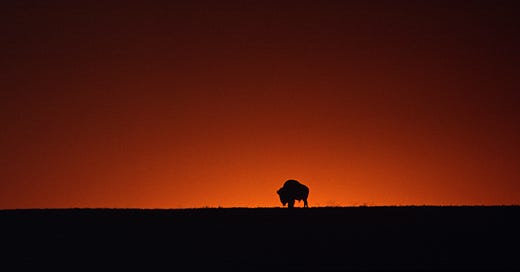
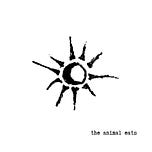








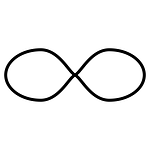

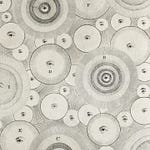

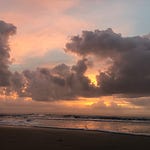
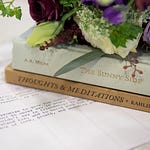
Share this post